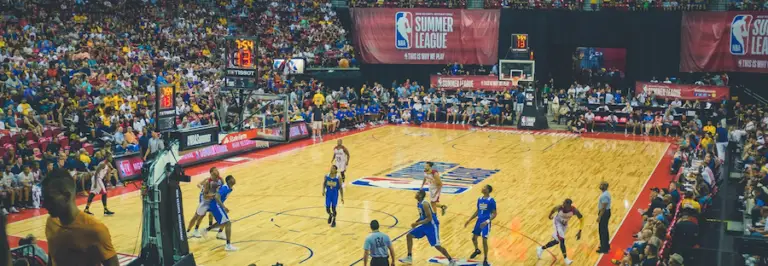Sportradar And Genius Give Us True Betting Data Insight

The news that Sportradar has listed in New York on Nasdaq means that we now have three sports betting data providers on the public markets, with Genius Sports and IMG Arena, as part of Endeavor being the others.
The exposure from listed status means we now have greater insight into one of the most critical aspects of the sports-betting supply sector.
Last week, for instance, Genius Sports reported its second-quarter figures at a crucial time both for US sports betting and the sports data provision sector.
Genius Sports and the NFL
Genius Sports, of course, is now the official data provider for the NFL – taking over from Sportradar – and in the past couple of weeks, it has been busily announcing deals with the league’s seven official sports-betting partners.
These deals were pretty much a given, seeing as the partnerships all featured official data as part of the agreement.
However, what isn’t entirely clear is the final cost of the deal between Genius Sports and the NFL. And by extension, what is therefore being passed on to the sportsbooks by way of cost increases.
Despite promising during the first quarter to divulge more ahead of the new season, Genius said little about the actual cost and resorted to commentary on the earnings call about the deal being “broadly” breakeven this financial year – which would suggest it will be loss-making – before “generating profitability” over the course of the six-year deal.
As discussed previously, the rumored cost of the deal is up to $120m in cash plus a tranche of share warrants. This second element amounted to a circa $200m share-based payment charge in the accounts, which, alongside the curtailment of a previous employee share options scheme, left the company with a net loss of $464.1m.
The other metrics from Genius’ second quarter were more positive; revenues rose year-on-year to $55.8m and were also up sequentially, albeit more modestly, while the company’s (heavily) adjusted EBITDA came in at $5.2m.
Sports Data Providers Making the Grade
But Genius Sports’ results weren’t the most significant news last week in the area of sports-data provision to sportsbook. Its larger rival, Sportradar, confirmed the details of its float on Nasdaq vias an SEC filing the day before Genius’ figures hit the wires.
The company will raise up to $612m and begin trading with a market cap of around $8.3bn. Compared to Genius’s guidance for revenues in 2021 of between $255-260m, Sportradar made $477.8m in a Covid-hit 2020, while revenues rose in the first six months of this year 42% to $272.1m. Adjusted EBITDA in 2020 was $90.7m, while in the first half of this year, it was $70.5m.
The company’s debut has been long-awaited. Earlier this year, it was rumored to be close to merging with Todd Boehly’s Horizon Acquisition SPAC, but that deal fell through.
Now Sportradar is seeking the direct listing route, and alongside Genius Sports and IMG Arena (which is part of the Endeavor Group), it means there are now three listed data providers on the US market.
Sportradar Goes Public
The listing of Sportradar, in particular, gives us a better view of how the sports data sector is developing. The SEC filing broke down the revenues, showing that in euro terms, the betting segment (data, managed trading services, and virtual sports) generated a majority of total revenues for the period, or €148.5m. In comparison, rest-of-world audio-visual service (that is streaming) was worth €75.6m.
The US was worth €28.9m, and although Sportradar passed on rights to the NFL, it still has deals for official data with the NBA, MLB, and an exclusive arrangement with the NHL.
Given the dynamics in the US sports-betting market right now, that revenue figure is sure to keep growing, as it will for Genius (where the Americas segment revenues were worth $9.5m in the second quarter) and the other data suppliers.
Indeed, it is the US growth story that has brought these European companies to the US stock exchanges. The enthusiasm for all things betting and gaming shows no sign of abating. Clearly, this translates into an investor appetite for the kind of picks and shovels companies that are destined to benefit as more states open up.
As the need across the US betting sector increases, the relationship between suppliers and the sector they serve can indeed be beneficial. But it relies on the services provided not only being reliable but also affordable. After all, no one wants to have to buy a solid gold shovel during a gold rush.
Scott Longley has been a journalist since the early noughties covering personal finance, sport and the gambling industry. He has worked for a number of publications including Investor’s Week, Bloomberg Money, Football First, EGR and GamblingCompliance.com. He now writes for online and print titles across a wide range of sectors.







